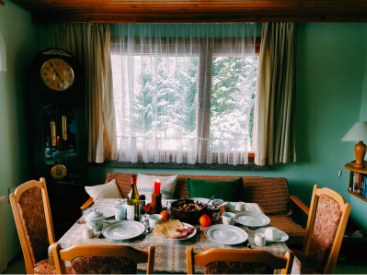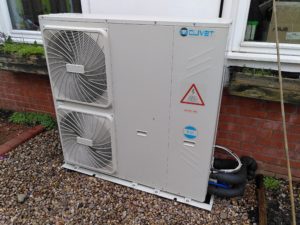

Join me, Phil Beardmore, on 17th December 2020 for the Green Homes Grant – Your Questions Answered webinar, in which you will learn about:
- what is a heat pump and how does it work?
- will a heat pump save money?
- which insulation measures you can get through the Green Homes Grant?
- how is solar thermal different from solar electricity?
- will insulation increase the risk of condensation and damp?
- what other energy saving products are available through the Green Homes Grant?
You will also find out:
- who is eligible for the Green Homes Grant
- what extra help is available to low-income homeowners
- how thermal imaging can help spot where your home is wasting energy
- how to make sure that energy saving measures don’t harm wildlife
- what questions to ask an installer to make sure you are getting the energy saving products that you need, and not being mis-sold
- how to work out if you are better off or not.
Including a Q&A session in which I will answer your questions on the Green Homes Grant.
There will also be an Ask Me Anything session, in which you can ask me any energy-related question relating to your home or business.
The cost of attending this webinar is just £5. All proceeds from this webinar will go to Anawim – Birmingham’s Centre for Women – https://anawim.co.uk/ You will be asked to pay £5 for the webinar. I will then pass on all proceeds to Anawim. (PayPal will deduct a few pence from your £5 – I will make up the difference).
If you are a member of Parity (www.parity.uk), then you can pay in Parity PTY. The cost is £5 PTY. Please click here to pay in Parity.
About me

I am the West Midlands’ leading expert in:
- energy saving
- renewable energy
- procurement of energy saving products
- water saving.
My customers include householders, landlords, public bodies, small businesses, charities and coops.
I am independent and impartial.
Phil Beardmore, FRSA AIEMA.
TESTIMONIALS
Nathalie Rush
Phil is truly an expert in his field. I can understand why most people around the West Midlands choose to go to Phil for energy-saving consultancy. Phil has a thorough understanding of energy conservation and sustainable living. Would highly recommend. Nathalie Rush, MD, Six Star Insulation.
Claire Spencer
His knowledge of community-led sustainability is second to none, and his perspective on local and national issues is invaluable to us. He adds value, and is everything a good consultant should be, and I would recommend him to anyone in our field Claire Spencer, Sustainable Moseley.
Rosemary Coyne
It has been hugely inspiring to work with Phil. While others talk, Phil gets on and does it. Rosemary Coyne, Coordinator, Sustainable Housing Action Partnership
Ray Walker
In working with Phil I have been impressed by his level of knowledge and enthusiasm. He has a vast array of contacts and has brought us into contact with other stakeholder in the energy business that would have been much more difficult to achieve without him. I am also struck by his commitment to supporting communities and the most vulnerable client groups.
Ray Walker, Disability Resource Centre
Cllr Karen McCarthy
Phil Beardmore has a long association with Localise West Midlands and is a valued associate on environmental, housing and fuel poverty projects.
He works with us both as an individual practitioner and leading multi-disciplinary teams on larger projects, delivering high quality results on time and on budget.
Cllr Karen McCarthy, Localise West Midlands









